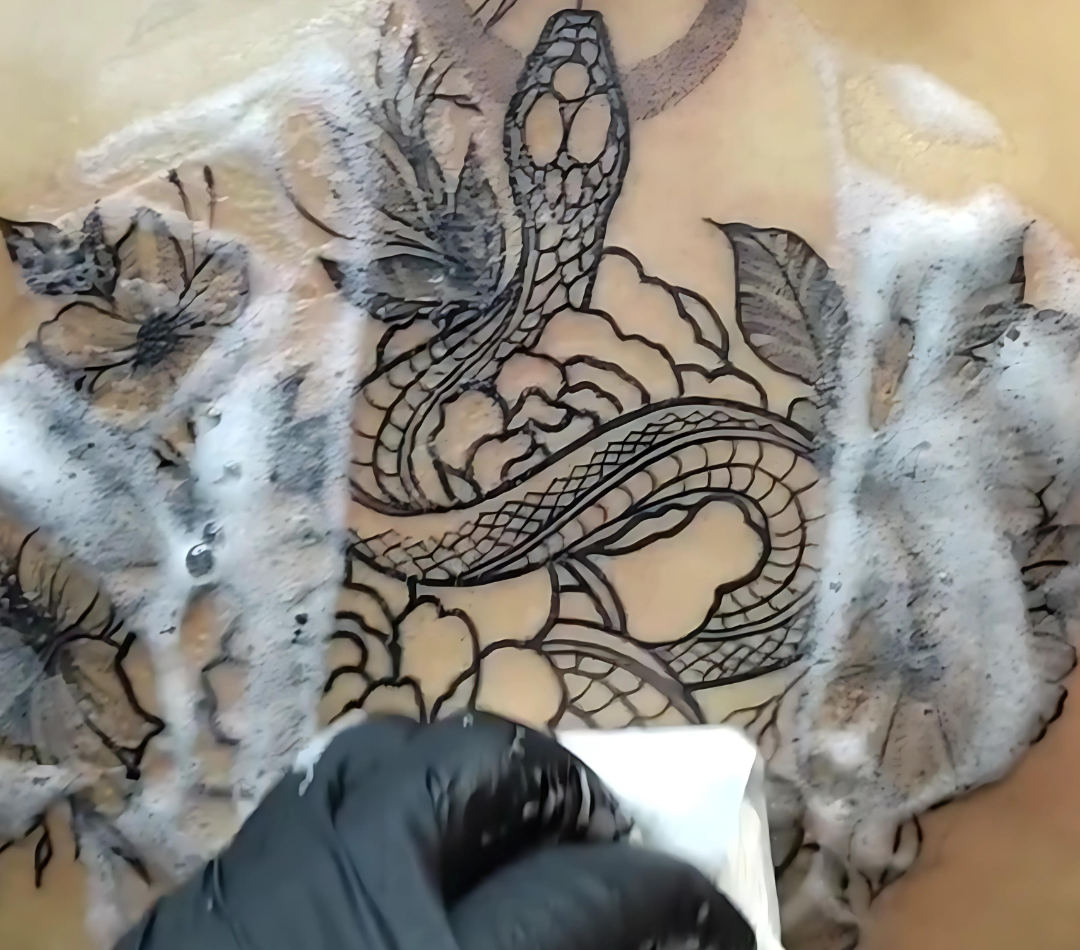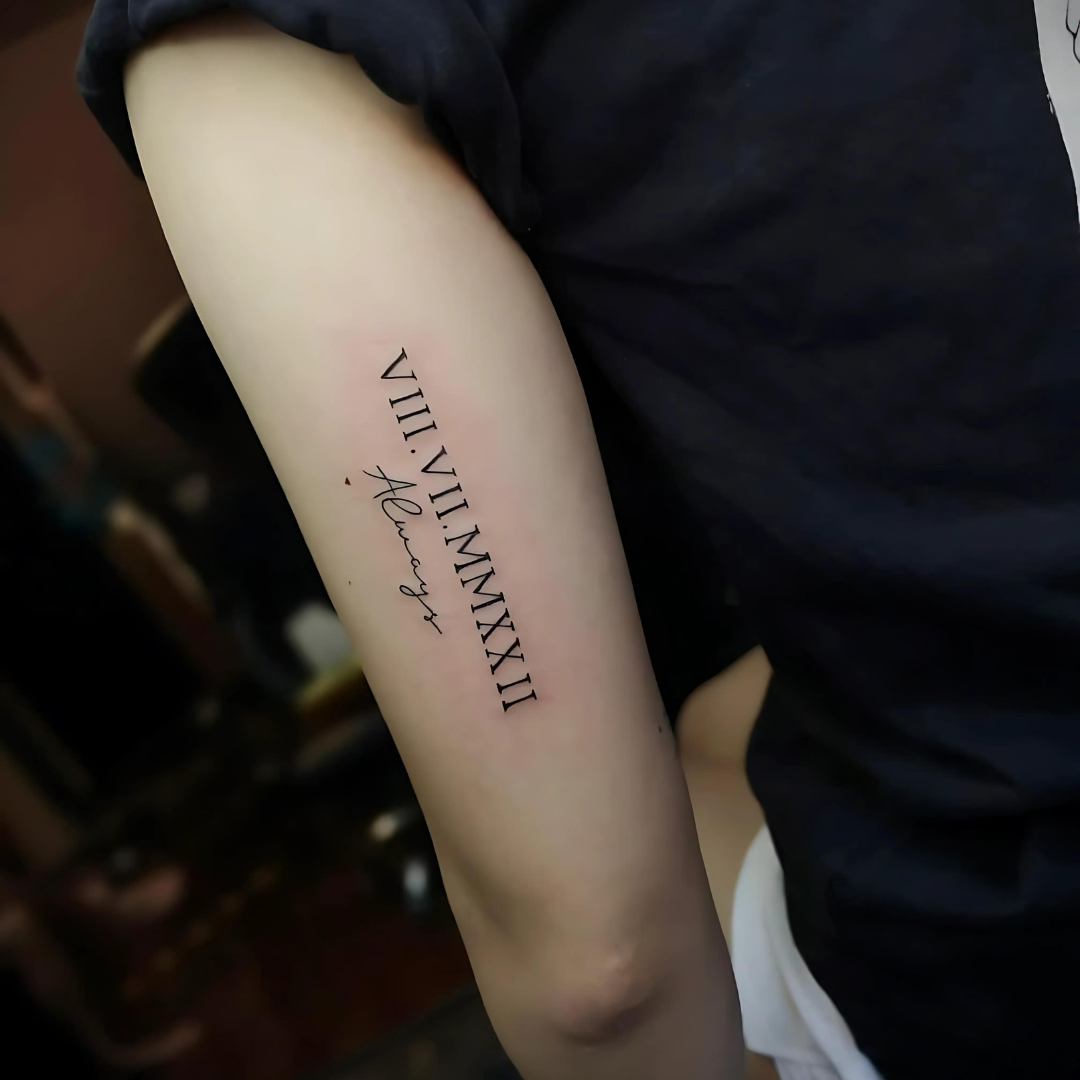The Ultimate Guide to Tattoo Aftercare: Keeping Your Ink Fresh and Vibrant
Posted on September 18, 2024 By Ttwins Tattoo

Getting a new tattoo is exciting, but the journey doesn't end when you leave the studio. Proper aftercare is crucial for ensuring your tattoo heals beautifully and stays vibrant for years to come. In this comprehensive guide, we'll walk you through everything you need to know about tattoo aftercare, from the moment you step out of the chair to long-term maintenance.
The Importance of Tattoo Aftercare
Your new tattoo is essentially an open wound, and like any wound, it needs proper care to heal correctly. Good aftercare not only prevents infection but also ensures your tattoo retains its colour and clarity. According to a study published in the Journal of Clinical and Aesthetic Dermatology, proper aftercare can significantly reduce the risk of complications and improve overall tattoo appearance [1].
Immediate Aftercare: The First 24 Hours
Keeping Your Tattoo Covered
Your artist will cover your new tattoo with a sterile bandage or wrap. Keep this on for the amount of time recommended by your artist, typically 2-4 hours. This initial covering protects your tattoo from bacteria and helps absorb any excess ink or blood.
The First Wash
After removing the bandage, it's time for the first wash. Here's how to do it:
1. Wash your hands thoroughly with antibacterial soap.
2. Gently clean the tattoo with lukewarm water and an unscented, antimicrobial soap.
3. Pat the area dry with a clean, soft towel. Don't rub, as this can irritate the skin.
Initial Moisturizing
Apply a thin layer of the aftercare product recommended by your artist. Many professionals suggest using a specialized tattoo aftercare product or an unscented, hypoallergenic moisturizer.
The Healing Process: Days 2-14
Daily Cleaning and Moisturizing
Continue to wash your tattoo 2-3 times daily with unscented soap and lukewarm water. After each wash, apply a thin layer of your aftercare product. Remember, less is more – over-moisturizing can clog pores and lead to infections.
What to Expect During Healing
During this period, you may notice:
• Redness and swelling (should subside after a few days)
• Itching and flaking skin (resist the urge to scratch!)
• A thin, transparent layer forming over the tattoo (don't pick at it)
Common Mistakes to Avoid
• Don't soak your tattoo in water (no swimming, baths, or hot tubs)
• Avoid direct sunlight exposure
• Don't pick or scratch at scabs or peeling skin
• Avoid tight clothing that might stick to the tattoo

Long-Term Care: Weeks 3-4 and Beyond
Continued Moisturizing
Even after your tattoo appears healed, continue to moisturize regularly. This helps maintain the vibrancy of your ink and keeps your skin healthy.
Sun Protection
UV rays are your tattoo's worst enemy. They can fade and damage your ink over time. Always apply a high SPF sunscreen to your tattoo when it's exposed to sunlight, even after it's fully healed.
Touch-Ups
Sometimes, small imperfections may appear as your tattoo heals. Most artists offer free touch-ups within a certain timeframe. Don't hesitate to contact your artist if you have concerns about how your tattoo has healed.
Nutrition and Hydration for Optimal Healing
What you put into your body can affect how well your tattoo heals. Stay hydrated and eat a balanced diet rich in vitamins A and C, which support skin health and collagen production.
When to Seek Medical Attention
While most tattoos heal without complications, it's important to know the signs of infection. Seek medical attention if you experience:
Frequently Asked Questions
How long does it take for a tattoo to fully heal?
While the surface of your skin may heal within 2-4 weeks, it can take up to 6 months for the deeper layers to fully heal.
Can I use petroleum jelly on my new tattoo?
It's generally not recommended as it can clog pores and trap bacteria. Stick to the aftercare products suggested by your artist.
When can I go swimming with my new tattoo?
Wait at least 2-4 weeks or until your tattoo is fully healed before submerging it in water.
How often should I moisturize my healed tattoo?
Once healed, moisturize your tattoo daily or whenever the skin feels dry.
Conclusion
Proper tattoo aftercare is an investment in your body art. By following these guidelines and listening to your artist's advice, you'll ensure your tattoo remains a beautiful expression of your personality for years to come. Remember, everyone's skin is different, so don't hesitate to consult with your tattoo artist or a dermatologist if you have specific concerns about your healing process.